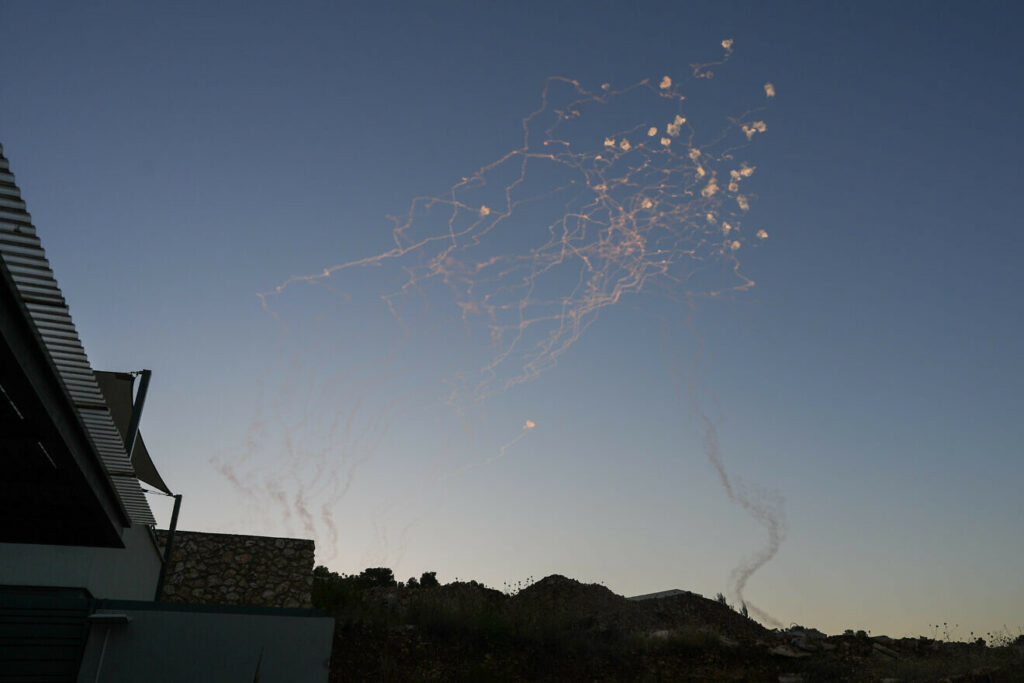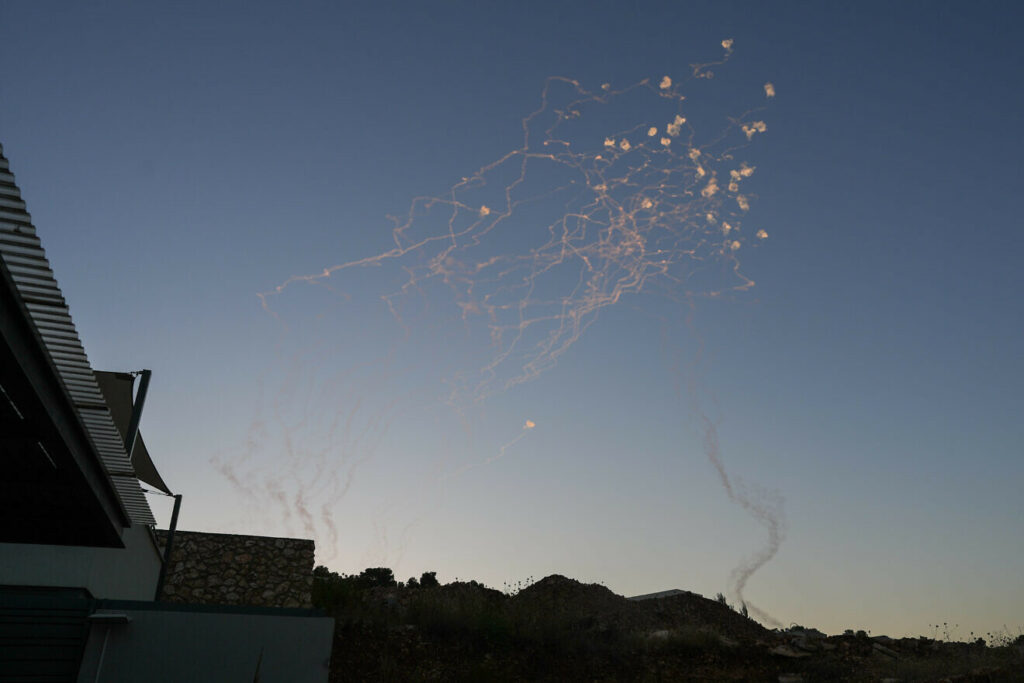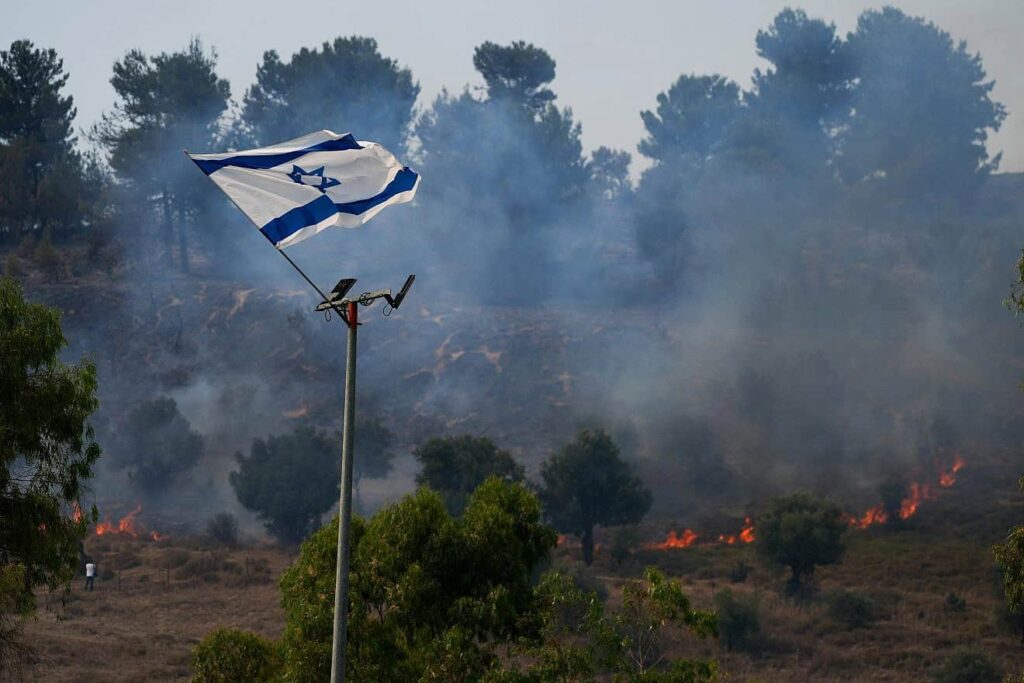
Time has run out for ‘Gaza first, Lebanon later’
High-profile assassinations are only useful as an opening blow. Israel needs a solution for the continued devastation across the north.
In the week of Oct. 8, 2023, the Israeli War Cabinet deliberated over a proposal to take the initiative against Hezbollah by responding to its attacks with a surprise full-scale invasion. The argument raised against this was that it would be strategic folly to attempt a full-scale war on two fronts and that decimating Hamas must be the priority. The latter view won out and it was decided to respond to Hezbollah’s attacks tit for tat, in what would become a war of attrition now entering its tenth month.
This decision may have been correct given the limited resources at our disposal and the scale of the task which lay before us in Gaza, but it entailed the heavy price of allowing the north to burn and its residents to be displaced, risking a longer-term loss of sovereignty in what has become a security buffer zone within Israel’s own territory. Since then, every time the specter of escalation in the north has arisen, Israel has chosen restraint, all in the name of completing the first phase of the reconquest of Gaza from Hamas.
But that phase was essentially completed over a month ago. Israel has attained the ability to maneuver throughout the entire Strip, including in Rafah and critically along the border with Egypt. It has now shifted to a less intense level of fighting, focusing on the slower and arduous task of fully eliminating Hamas presence through targeted raids, clearing the maze of underground terror tunnels, and gradually dismantling Hamas’s command structure. This new phase is expected to take many months, perhaps years, and so Israel can no longer justify waiting for its completion to turn its attention to the north.

(source: JNS)
As soon as Israeli Prime Minister Benjamin Netanyahu returned from his vital visit to the United States, the time had come to shift the center of gravity of Israel’s efforts northwards. Therefore, it would be a mistake to view the events of the past week as merely another round of tit for tat following the terrible attack on Majdal Shams. That attack is not the reason Israel must increase the intensity of the fighting against Hezbollah, but rather a symptom which serves to demonstrate just how necessary is a shift of focus.
It would be preferable for Israel to now launch a surprise all-out war against Hezbollah with the goals of destroying its missile stockpiles and disbanding it as an organization, as U.N. Security Council Resolution 1701 requires. It is never a convenient time to start a war, and the current case is certainly no exception, but it highly unlikely that there will be a better opportunity for this inevitable war in the foreseeable future, and an opening surprise salvo against Hezbollah’s precision missiles would be of great advantage. Nonetheless, in view of the various constraints, it seems Israel is not likely to take such a drastic step.
In the absence of initiating a war to eradicate Hezbollah, the least Israel must do is address the two most immediate threats: a cross-border ground invasion and the short-range rocket fire on border towns. Addressing the first will require some form of ground maneuver to establish a buffer zone in Lebanese territory. Addressing the second requires extensively damaging Hezbollah’s missile and rocket stockpiles. If both of these minimal goals can be achieved, then Israel could consider settling it there and postponing the inevitable larger conflict to sometime in the coming few years, and use the intervening time to re-arm and prepare itself.

Given this situation, high-profile assassinations are only useful as an opening blow. On their own, they do not provide any solution for the situation in the north or address the continued threat from Hezbollah. They throw the organization off balance for a while, and this is a valuable first step before more significant action that will bring lasting change to the situation, but if we stop there Hezbollah will replace its losses and we’ll be back where we started.
There is political benefit to the assassinations, as Israel’s allies view them as surgical strikes against legitimate targets, whereas for Hezbollah and Iran they constitute a severe affront to their honor which precludes anything but an escalatory response. Thus when the Iranian-led axis inevitably attacks Israel, Jerusalem will receive begrudging international acceptance to expand the campaign, as it will be clear that Hezbollah is the one dragging us into a broader war.
Israel is now on standby for an Iranian-led attack and is busy preparing to defend its population. Hopefully it will succeed in preventing any significant damage to life and property, but it would be a grave mistake to treat the attack according to the actual damage caused, rather than the damage intended. Israel does not need more corpses to justify broader action against Hezbollah or even against Iran directly. Any self-respecting country must take with grave seriousness the severity of the attack itself, and not hide behind its sophisticated defensive capabilities to justify avoiding conflict.
We are at a historic moment of truth. The time for the “Gaza first, Lebanon later” strategy has run out. Israel must face the fact that it is at war with Iran and all its proxies. Now is the time to turn this terrible war that was forced upon us into an opportunity to change the balance of power and shape the reality around us.
The post Time has run out for ‘Gaza first, Lebanon later’ appeared first on Israel365 News.
Israel in the News